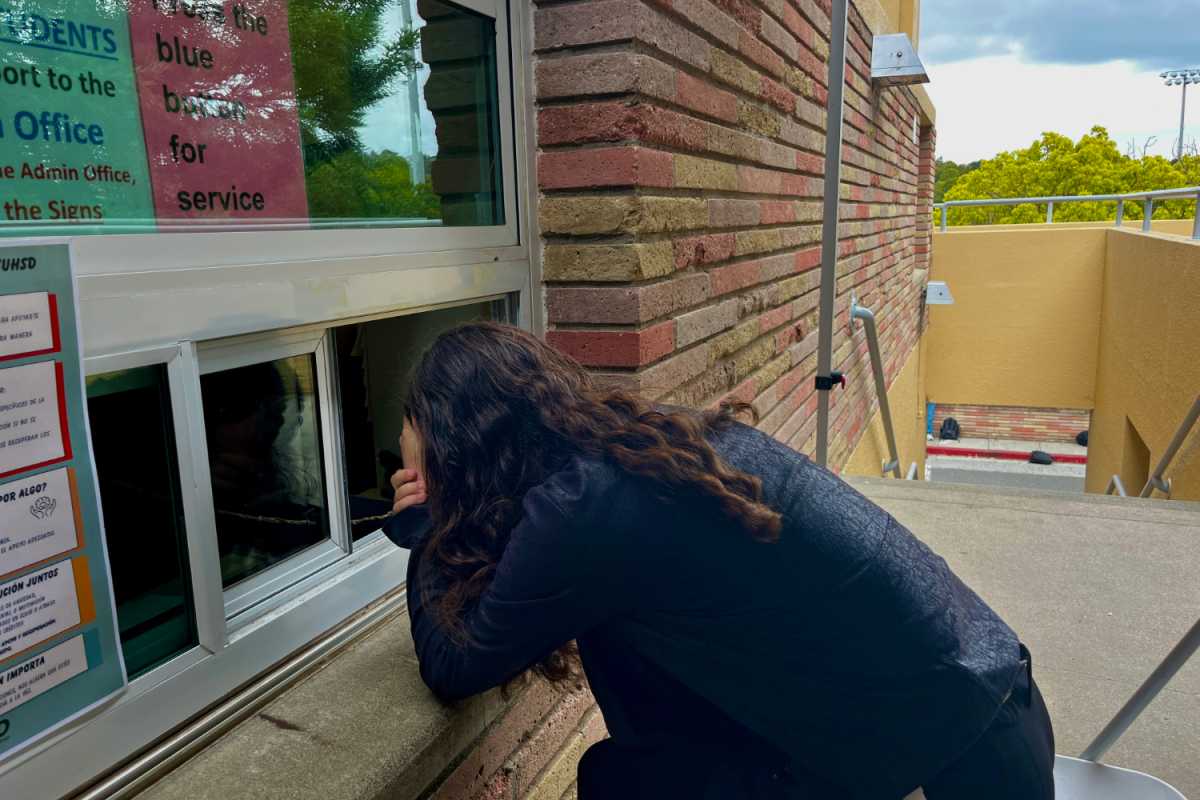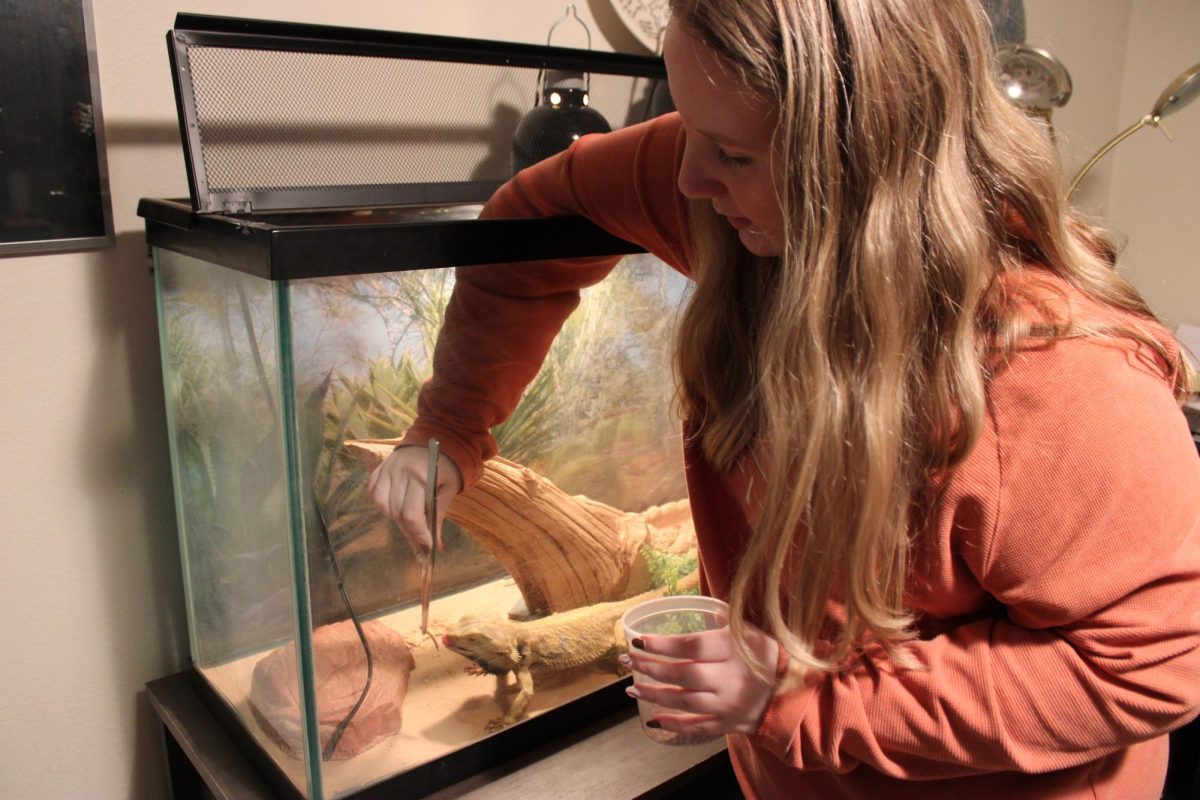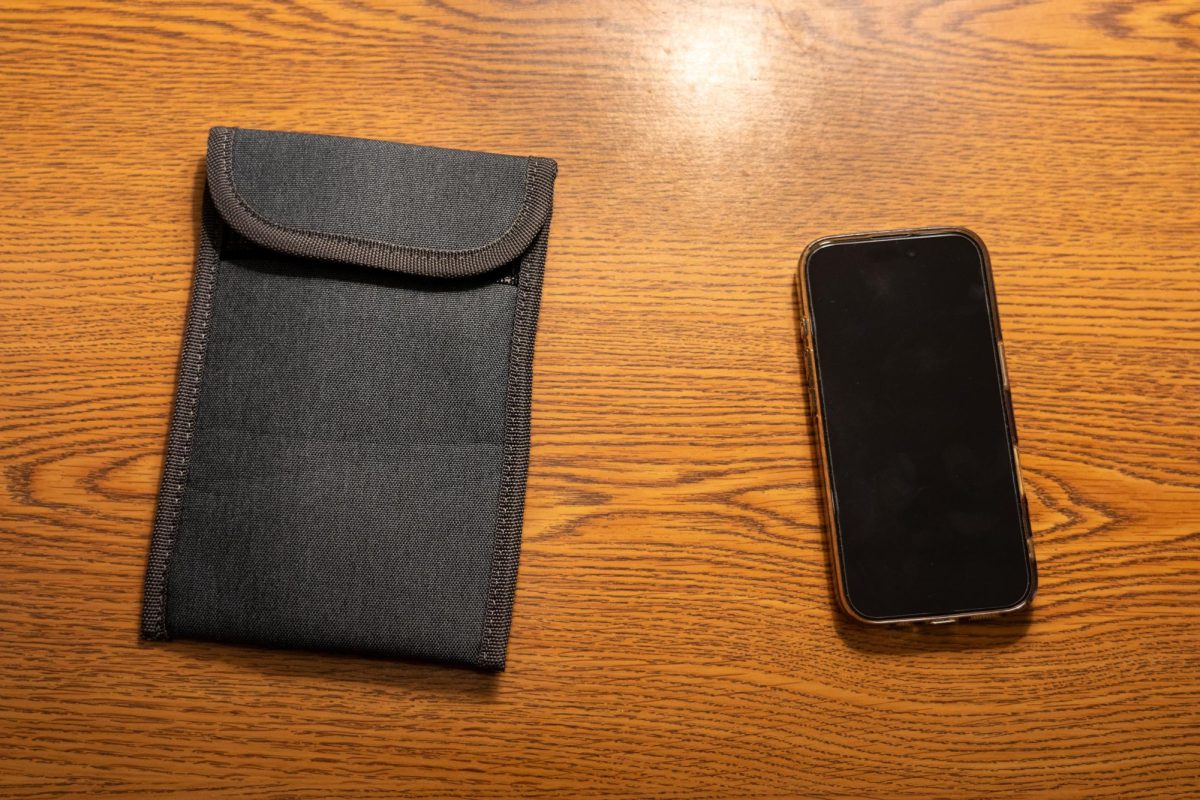AP Spanish Language and IB Spanish teacher Esther Galo calls herself a proud immigrant’s daughter. Her mother migrated from Honduras in order to give her half sister a better life, working from 7 a.m. to 8 p.m. to make ends meet.
Galo’s mother would tell her, “You have to get an education so you’re not cleaning houses.” She would accompany her mother while she cleaned and saw firsthand the sacrifices and little pay she made in order to provide for the family.
“Let’s just assume that my parents weren’t citizens,” Galo said. “I don’t know what I would do if my mom got deported, especially at this age. She’s been here for 40-something years. I can’t even imagine it.”
What Galo considers the “unimaginable” has become the life of 32,809 people within the first 50 days of President Donald Trump’s second term.
When Trump took office in January 2025, his administration prioritized limiting all immigration and enforcing stricter deportation policies.
Three days after Trump’s first week, Superintendent Mike Miles sent out a district-wide email assuring families that the Houston Independent School District’s policy is to “ensure that student rights and information” are protected.
“Law enforcement is only granted access to students or student information when HISD Legal Services has verified that all required steps have been taken, and the law enforcement action does not violate any of the federal privacy protection afforded students and their records,” Miles said in the email.
Upon Trump’s first term in 2016, HISD also posted an FAQ document online, clarifying that HISD does not collect information on a student’s immigration status when they enroll.
The document states: “All children have a constitutional right to equal access to education regardless of their immigration status or that of their parents. That right cannot be taken away by the president, the State of Texas or Congress.”
Additionally, the U.S. Supreme Court’s Plyler v. Doe (1982) decision ruled that states cannot deny children an education based on their citizenship status or take actions that would discourage them from enrolling in school.
Immigration and Customs Enforcement guidelines instated in 2011 prohibited arresting migrants in “sensitive spaces” such as schools, hospitals and places of worship. However, on Jan. 20, the Trump administration reversed the guidelines, allowing immigration officers to arrest migrants in such spaces.
The Department of Homeland Security released a statement in response to the action, saying it “empowers the brave men and women in Customs and Border Protection and ICE to enforce our immigration laws and catch criminal aliens” and that “criminals will no longer be able to hide in America’s schools and churches to avoid arrest.”
So far, there is no evidence that ICE has arrested students in any US high school, although ICE has indeed detained parents of students near schools. A parent dropping off two students was detained near a Chicago charter school, and another undocumented parent was also detained while taking his two children to school in San Diego.
Alex Marrero, superintendent of Denver Public Schools, said ICE raids near a school in February scared kids from “coming to class for days.” Decreased student attendance due to fear of ICE raids has caught Galo’s attention. She is “most scared” of parents withdrawing students and keeping them home.
“I think that’s the main concern, the ‘what if?’” Galo said. “What if the parents are taken in? What happens to the children? I definitely see a lot of weight being carried by a lot of my students, whether they [are] first generation or they’re from countries outside of the United States. A lot of students have mentioned a concern about ICE coming to school. This creates a lot of stress and a lot of uncertainty, and then also that feeling like they don’t have a sense of belonging.”
Galo has shared resources to her students about policies such as Deferred Action for Childhood Arrivals and organizations such as the League of United Latin American Citizens to inform students of their rights.
“A lot of us teachers, especially in the foreign language department, have spoken about this,” Galo said. “We are making sure that we just provide a safe environment for students, so that they don’t feel like they’re alone and they’re battling this with no guidance. I just think there’s so many things that we can do just to provide a lending hand to the community and our students.”
For one undocumented student who prefers to remain anonymous for concern of safety and risk of deportation, the “what if” became a reality: ICE deported two of the student’s family members soon after Trump’s inauguration.
“They were on the way to the store when the immigration patrol stopped them,” the student said. “One of them was already an adult, and one of them was under 18. Once he turned 18, he got deported.”
The student said it was a “major shock” for the family as they have lived in the US for around a decade. Now, the family is taking precautions to prevent detainment.
“We are trying to drive only when it is necessary because we don’t feel comfortable after what happened with my cousins,” the student said. “My family is thinking about making a business in case something like that happens so we have a job to survive.”
Although the student initially faced challenges like a language barrier when moving to the US, America has become home.
“The thing I am most scared of is being deported and not being able to come back here,” the student said. “I feel like I have a life here already. I just don’t want to start over in another country that to be honest, I don’t remember. The living conditions are not the same as here.”
Trump’s Executive Order 14163 states that the country is unable to absorb a large amount of migrants “in a manner that does not compromise the availability of resources for Americans, that protects their safety and security, and that ensures the appropriate assimilation of refugees.”
Still, in border states like Texas, immigrants make up a significant part of the demographic.
It is estimated that Texas has a population of 1.6 million undocumented immigrants, and over 40,000 undocumented children aged 3-17 live in Harris County.
Despite the number of immigrants in HISD, the anonymous student believes there is a lack of acknowledgement for their community in the classroom.
“I think that we don’t talk about [immigration] as much as we should,” the student said. “Teachers don’t do lessons about it, but I think they should.”
To further work with immigrants’ legal needs, HISD provides the Sunrise Center, a hub with seven locations across the district offering social welfare programs such as food pantries, case management and medical care. Bellaire High School provides two Emergent Bilingual counselors who are specialized in working with immigrants and students learning English.
Recently the Houston area has been flooded with protests across parks, streets and in front of City Hall. “A Day Without Immigrants” protest most directly affected HISD with more than 24% of students being absent during the nationwide sickout on Feb. 3.
Emergent Bilingual teacher Helia Forouzan specializes in teaching students English as a foreign language. It’s her first year at Bellaire, but she has worked with new coming immigrants for seven years. Forouzan said that this job is the hardest job she has ever loved and that teaching students English empowers them to thrive in the US.
“I let them open up to me, and every time they do, I have to take a step back and breathe, because otherwise I will take that home with me,” Forouzan said. “But every time I process their story, I’m reassured that I need to do this work. Somebody needs to teach them English.”
Forouzan experienced a shift in her classroom after the immigration executive orders. In prior years, she would receive many new students at different intervals because kids would be released from detention centers in waves. This January, she only had around four new kids enrolled in her class, and she lost three kids due to deportation and other issues. Her students also felt an immediate change.
“Because a lot of my kids are refugees, they are participants with the YMCA and other great organizations that work with refugee students,” Forouzan said. “All of these organizations immediately got cut with no forewarning. That weekend, if they had a camp to go to, they got an email saying we’re no longer having this camp. It was as immediate as one week. It was pretty extreme for some kind of executive order to be translated on a local level that fast. I was pretty shocked.”
But this is not the first time that Forouzan has felt a lack of resources for newcomers in her classroom. With the removal of HISD’s Wraparound Services last year, which included counseling services, at-school pantries and other “vital resources,” it has been more challenging for her students to receive help.
The district provides similar services at the Sunrise Center, but compared to the accessibility of the Wraparound Services, Forouzan said that she feels this program is not “geographically feasible.”
“There are some students that need food right away,” Forouzan said. “They don’t have the transportation to get to a Sunrise Center. They need clothing, food, sanitary items, all right away.”
Forouzan will continue to support her children in ways she thinks she can.
“We all have to pick one thing that we can advocate and focus on that,” Forzouzan said. “Otherwise it’s too exhausting. There’s just way too many executive orders, way too fast. I’m hopeful that students can utilize our resources, such as speaking to teachers, their counselors and Ms. Stephanie Aguilar, our new social worker.”
Aguilar suggests these following resources for immigrants in Harris County: F.I.E.L. Houston, Galveston-Houston Immigration Representation Project (GHIRP), Amaanah Services, PAIR Houston, BakerRipley and Catholic Charities of Galveston-Houston.
The Trump administration is moving quickly to terminate all illegal immigrants. It released a notice on March 25 terminating the categorical parole programs for “inadmissible aliens” and their immediate family members. These programs allowed entry to the US for Cubans, Haitians, Nicaraguans and Venezuelans for a temporary stay of two years. Now, they must self-deport by April 24.
Because of the executive actions, some immigrants remain in a state of uncertainty.
“I would like to tell other immigrants that they are not here alone,” the anonymous student said. “This will end sooner or later. We just have to be strong and ready for anything.”
This story was originally published on Three Penny Press on April 4, 2025.


































